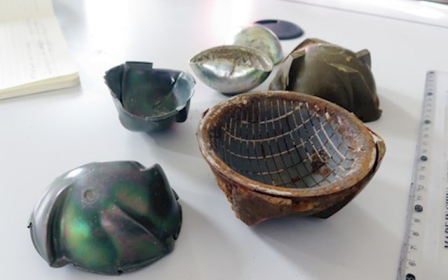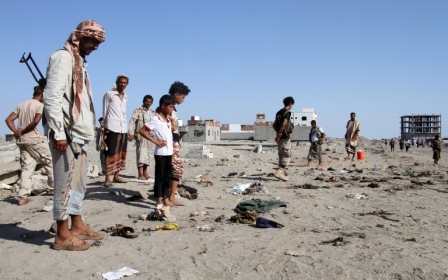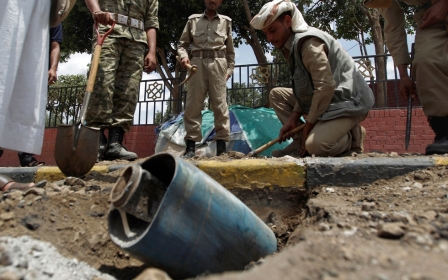Saudi coalition says UK-made cluster bombs used in Yemen

The Saudi-led coalition fighting in Yemen on Monday said it had made "limited use" of British-made cluster bombs, a type of weapon which 100 countries have pledged not to use.
In its 21-month campaign against Houthi rebels, the Saudi-led alliance has faced repeated allegations of killing civilians.
It said it used the BL-755 cluster bombs "against legitimate military targets to defend Saudi towns and villages against continuous attacks" by the Houthis. The rebels have fired rockets into the Saudi side of the border, killing civilians and soldiers.
The coalition claimed it deployed the weapons in accordance with international humanitarian law, and not in civilian areas, adding that Saudi Arabia no longer uses the BL-755.
London-based rights group Amnesty International in June said that "at least 16 civilians – including nine children – have been killed or injured by cluster submunitions" between July 2015 and May of this year.
Amnesty said its findings came from the rebel stronghold of Saada as well as the Hajja area. Both are near the border with Saudi Arabia.
Since fighting escalated last year, more than 7,000 people have been killed in Yemen, about half of them civilians.
The United Nations High Commissioner for Human Rights in August reported that coalition air strikes were suspected of causing around 50 percent of all civilian deaths.
One hundred nations are party to the 2008 Convention on Cluster Munitions which bans their use.
Britain is a party to the convention but Saudi Arabia, its coalition partners and the United States are not.
British defence secretary Michael Fallon told parliament on Monday he welcomed the Saudi decision to no longer use BL-755 cluster munitions.
"We will continue to keep current sales of military equipment to Saudi Arabia and other Gulf allies under review," he said.
In January, the coalition spokesman said alliance forces had used CBU-105 cluster bombs against rebel vehicles.
US President Barack Obama's administration moved in May to block sales of cluster bombs to Saudi Arabia as concerns over civilian casualties in Yemen mounted, the journal Foreign Policy reported.
Cluster bombs contain multiple submunitions, which sometimes do not explode and become de facto landmines that can kill or maim long after being dropped.
Earlier this year, an inquiry by three separate UK House of Commons committees cited reports on Saudi cluster bombs fired on populated areas in Yemen. The committees urged the Ministry of Defence to conduct its own investigation into the Saudi-led coalition’s use of UK-supplied cluster bombs.
The UK government said last month that it takes such reports seriously, noting that it stopped supplying Saudi Arabia with cluster bombs in 1989.
Human Rights Watch, a New York-based watchdog, on Monday said the British-made cluster munitions had been transferred years ago and are no longer sold to Saudi Arabia.
But Britain continues to sell other weapons to the kingdom "despite the clear risk" of their use in future coalition attacks, the watchdog said, calling for a suspension of British arms sales to Saudi Arabia.
The Houthi Prime Minister, Abdel-Aziz bin Habtoor, said last week that the British government was profiting from the humanitarian crisis by selling munitions to Saudi Arabia.
"They know the Saudis are going to drop them on Yemen… They are participating in the bombing of Yemen people," he told Sky News.
Last week, the United States blocked the transfer of precision-guided bomb kits to Saudi Arabia out of concern over "flaws" in coalition targeting, a senior US administration official said.
Saudi foreign minister Adel al-Jubeir on Sunday dismissed such reports as "media propaganda".
Middle East Eye propose une couverture et une analyse indépendantes et incomparables du Moyen-Orient, de l’Afrique du Nord et d’autres régions du monde. Pour en savoir plus sur la reprise de ce contenu et les frais qui s’appliquent, veuillez remplir ce formulaire [en anglais]. Pour en savoir plus sur MEE, cliquez ici [en anglais].




